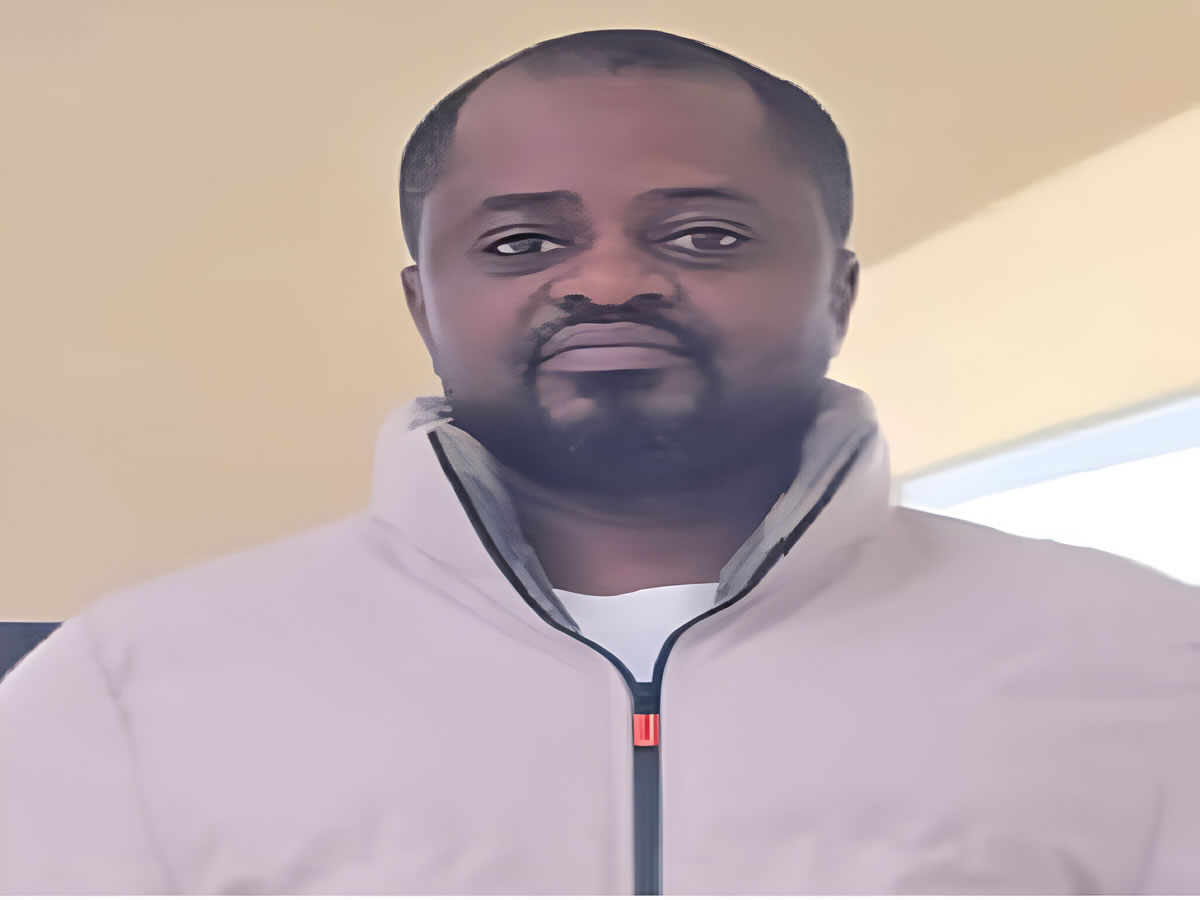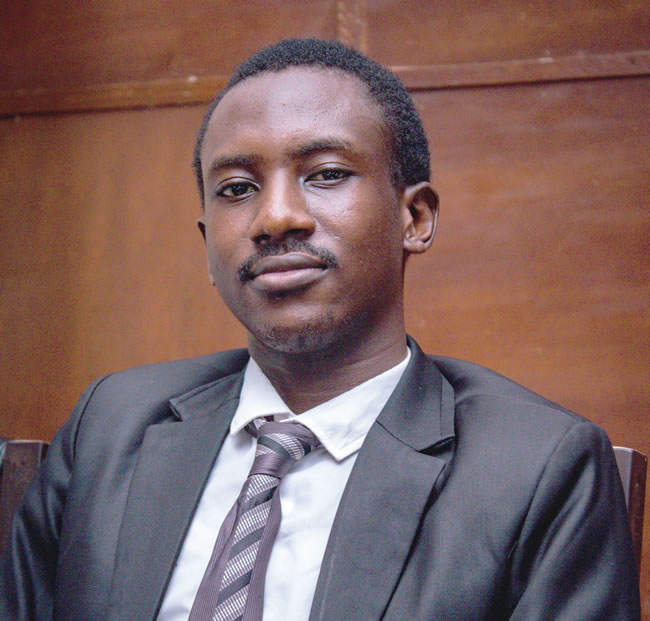John Ifeanyichukwu Amaka is a scholar and PhD student at the University of Georgia, United States. As a prolific researcher, he has won three international scholarships — the Commonwealth Master’s Scholarship, the Erasmus Mundus Joint Master’s Scholarship, and the University of Georgia Graduate Research Assistantship. In this interview by KINGSLEY ALUMONA, he speaks about his research work and interests, among others.
You spent much of your adult life studying Zoology in Nigeria before moving abroad (to the United Kingdom, Spain, and the United States) to study infectious diseases. Why Zoology? Why persistently study it without switching to other courses?
I think there is a narrow view of the field of Zoology in Nigeria. Zoology goes beyond the study of animals to include other fields such as parasitology, medical entomology (which studies vectors of human diseases), genetics, and molecular biology. These are some of the fields where there are ground-breaking research works helping to combat infectious diseases in our world. I studied Zoology at the University of Nigeria (UNN), and majored in parasitology and vector biology in my master’s at Kebbi State University of Science and Technology because I am interested in contributing to the control efforts against the deadliest tropical disease which is malaria.
Your profile states that you studied under scholarships for your University of Edinburgh, Universitat Autonoma de Barcelona, and the University of Georgia postgraduate programmes. Tell us about these scholarships and how you were able to get them.
I have been privileged to secure three foreign scholarships consecutively: Commonwealth Master’s Scholarship (MSc Global Health and Infectious Diseases, University of Edinburgh, UK); Erasmus Mundus Joint Master’s Scholarship (MSc Human Diseases Models Morphological Phenotyping, Universitat Autonoma de Barcelona, Spain); and the University of Georgia Graduate Research Assistantship (PhD Infectious Diseases, University of Georgia, US). I am particularly grateful to the British government, the European Union, and the University of Georgia, respectively, for these rare opportunities to obtain a world-class education.
These scholarships are ferociously competitive, and securing them takes a lot of preparation in terms of not only having the requisite research and academic skills but also being able to craft your application to reflect your deep passion for the programme of study as well as suit the objectives of each scholarship scheme. I got myself prepared not just by having good grades in Nigeria but also by acquiring the needed research skills as well as communicating same effectively to appeal to the scholarship bodies.
Among the scholarships, which one impacted your academics and career most?
I would not say that anyone one of them has the most impact because each preceding one made it easier to secure the next one. Each of them has provided me with unique benefits in terms of research and networking, and these have helped to broaden my horizons. Of course, the PhD programme at the University of Georgia is the most daunting and rigorous, and I must confess that my being here is possible because of the training and skills I obtained from preceding scholarships, as well as my previous education in Nigeria.
Tell us about your PhD programme at the University of Georgia. How did you come to study there?
My previous research work in Nigeria was on malaria vectors (Anopheles mosquitoes), and I was determined to pursue it to the doctoral level. So, I searched for related PhD programmes in the US, and the PhD Infectious Diseases programme at the University of Georgia came top because I found my current supervisor, Dr Doug Paton, whose research interest in malaria transmission biology completely aligns with mine. I applied through the Integrated Life Sciences (ILS) platform, got admitted after a rigorous interview process, and finally joined his laboratory following three laboratory rotations as stipulated by the ILS.
Working with the incredible people in the laboratory and the department, and participating in university activities, have been the experiences of a lifetime for me.
Tell us about your PhD work/thesis and the possible findings from it.
My research interest is in malaria transmission biology, and my PhD work centres on creating tools and interventions to block the development of the malaria parasite (Plasmodium spp) within the mosquito vector. The ultimate goal of this research effort is to integrate some of these interventions into insecticide-treated nets, since malaria vectors are developing resistance to existing insecticides, including insecticide-treated nets.
Why did you choose this area of research — malaria transmission biology?
Malaria is the deadliest parasitic disease globally, responsible for 600,000 deaths annually, 90 per cent of which occur in sub-Saharan Africa, and 80 per cent of deaths due to the disease in the region are among infants aged zero to five. The best point to target the malaria agent is at the vector stage within the mosquito before it gets transmitted to humans where it causes devastating impacts. That is why I am interested in malaria transmission biology because it holds enormous potential to prevent thousands of deaths.
Innovative research and graduate scholarship, especially in health sciences, cost money and time. How do you hope to sustain your PhD work and malaria research? Do you have support or aid from the university or other organisations?
I have a research assistantship from the university, and have also secured a graduate research prize — Tom Zydowsky Doctoral Award — which is an outstanding award for a deserving African graduate student at the Center for Tropical and Emerging Global Diseases, University of Georgia.
I hope that as the research progresses, more funding will come to support this incredible work on malaria transmission.
If you were given a grant to further your research and work, what do we hope to expect at the end of the work — a cure or vaccine for malaria, or what?
There are tons of research work on malaria, but there are still lots of things that we do not know about the basic biology of the malaria parasite and its mosquito vector.
Having grants in this regard provides an enormous opportunity to explore the basic biology of this parasite within its vector, exploring vulnerabilities in the parasite-mosquito interactions that could be exploited to design interventions aimed at reducing human infections. The ultimate goal will be an innovative tool to halt the development of this deadly parasite within the vector and prevent its transmission to humans.
How would you advise governments and healthcare stakeholders where malaria infection is prevalent, especially in most African countries, on how to manage the disease?
It is actually ironic that people in the developed world, where no malaria exists, are teaching us the basic biology of the disease. Over 90 per cent of both cases and deaths due to the disease occur in sub-Saharan Africa. Sadly, none of the current interventions against the disease in the region is home-grown.
Apart from malaria, there are other tropical diseases classified as Neglected Tropical Diseases (NTDs), such as Lassa fever and sleeping sickness, because they are diseases of poverty, occurring in the poorest regions of the world, including sub-Saharan Africa. Most of our universities and research institutes at home do not have the expertise and facilities to undertake ground-breaking research in infectious diseases.
African governments should, as a matter of priority and urgency, invest more in cutting-edge research, including expertise and facilities. We should be teaching the world about malaria and other tropical diseases, as well as the local solutions we are developing to combat them.
Aside from your scholarly activities at the University of Georgia, how do you contribute to the university community? In what way would you say you have impacted the State of Georgia or the US as a whole?
Apart from my academic engagement, I volunteer for the Scientific Research and Education Network (SciREN), which is a graduate-led effort to connect STEM researchers at the University of Georgia with local educators in Georgia to improve science literacy among young people, empowering the next generation with knowledge that can inspire their career aspirations in STEM fields. This is particularly interesting for me because, as a former secondary school teacher in Nigeria, I understand the importance of bridging the gap between scientific research and classroom education. I know firsthand how access to engaging, research-informed educational materials can inspire students and shape their understanding of science.
By working with SciREN, I contribute to making cutting-edge research accessible to educators, ensuring that students are exposed to current scientific advancements in ways that are both engaging and age-appropriate. This is one of the ways in which I contribute to my local community here in Georgia and, by extension, the United States of America.
Do you have any initiative through which you mentor scholars hoping to study in Europe or the US? What advice do you have for scholars, especially Nigerian scholars, hoping to study in the US?
On my LinkedIn and Facebook profiles — which go by the name Ifeanyi Amaka — I mentor young people who have the zeal and qualities to study in Europe and North America. I guide them on how to craft winning scholarship applications that not only reflect their passion and skills but also communicate same in a manner that is irresistible to assessors. This has already started yielding results as I can boast of several scholars who have benefited from my guidance.
What is next for you after completing your PhD at the University of Georgia? And where do you see yourself and your career in five years?
After completing my PhD, I hope to be involved in research projects to contribute to malaria control in the tropical world, especially in sub-Saharan Africa, where the disease has the most impact. Whether it is an effort led by governments, industry, or international organisations, the goal is to contribute to the fight against the deadliest parasitic disease of our lifetime.








